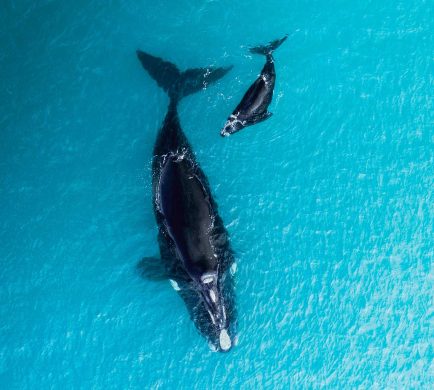To Debut June 7 on National Geographic, Streaming Globally on Disney+ and Hulu on World Ocean Day

The Eden Magazine interview with Dr. Enric Sala
Marine Biologist and National Geographic Explorer-in-Residence.
In celebration of World Ocean Day, National Geographic is set to premiere Ocean with Sir David Attenborough, a breathtaking new documentary that dives deep into the heart of our planet’s most vital and awe-inspiring ecosystems.
The film will stream globally the following day on Disney+ and Hulu, inviting viewers around the world to witness the wonders and fragility of the ocean through Sir David Attenborough’s iconic voice and perspective.

To mark this momentous occasion, The Eden Magazine is honored to feature an exclusive interview with Dr. Enric Sala, a renowned marine biologist and National Geographic Explorer-in-Residence. Dr. Sala, a passionate advocate for ocean conservation and the founder of the Pristine Seas project, offers invaluable insight into making the film, the urgent need to protect marine biodiversity, and how storytelling can inspire global action for our oceans.
The documentary highlights both the beauty and fragility of our oceans. How do you personally balance hope and urgency when communicating the ocean’s challenges and potential for recovery?
The urgency is clear. Combined with the magnitude of the threat, it makes it very difficult not to be pessimistic. But I believe that it’s possible to bring marine life back, and that’s because I have actually seen it happen. This is shown in the film.

David Attenborough speaks of a profound scientific discovery showing the ocean’s ability to bounce back—can you share some of the most inspiring examples you’ve witnessed firsthand of ocean restoration or regeneration?
When I was a little kid, I grew up off the coast of Spain, watching The Undersea World of Jacques Cousteau. Cousteau showed great marvels of the sea, whales, sharks, huge turtles, and more in that series. But as a kid, I saw none of these wonders when I would swim in the Mediterranean. Ten years later, upon getting my diving license, my first dive was at an ocean reserve, and to my amazement, I saw it all! Octopus, lobster, scorpion fish, everything! I knew that this is what the Mediterranean of my childhood would’ve been like had we not killed everything. This is an example of how, if we create reserves, the sea will return spectacularly.
With destructive fishing techniques exposed in the film, what policy or behavioral changes do you believe are most critical for reversing the damage to marine ecosystems?
For a long time, we have known about the damaging impact of bottom trawling the ocean. In this film, people will for the first time see what this practice does. I hope that the film, added with the scientific data, will be enough to make decision makers do what the data suggests, which is banning bottom trawling.

How does the power of immersive, visual storytelling like this documentary play a role in driving real change for ocean conservation compared to scientific reports or policy papers?
We have enough science to know that if we stop harming the ocean and step back, it will heal itself. But now we have this film, which exposes two major things never really seen before: bottom trawling and the ocean’s ability to come back to life if just left alone. And so, this film is a gift given that it will hit people’s hearts, guts, and brains, and this will make people want to protect it.
As someone deeply involved in marine protection, how do you see the future of ocean conservation evolving in the next decade, and what role do protected marine areas play in that vision? Overfishing, global warming, and pollution are the three main threats to the ocean. We need to reduce our carbon footprint, which is difficult; however, overfishing is easy to stop. In the next five years, we need to quadruple the number of protected ocean areas, and National Geographic and this film will help us do this.








Comments